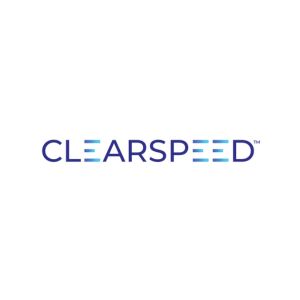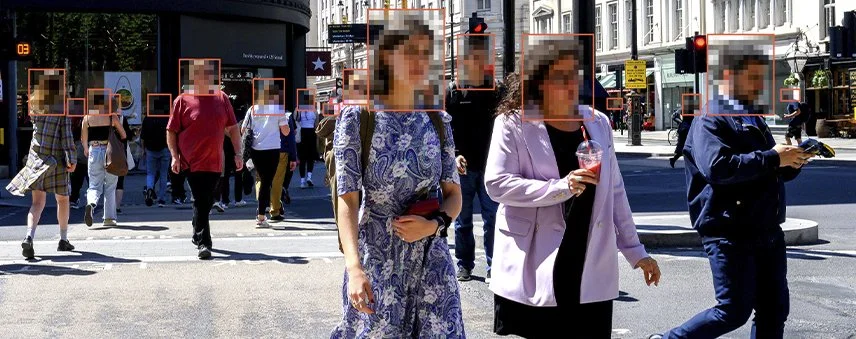
By futureTEKnow | Editorial Team
In today’s digital landscape, video data has become both ubiquitous and highly sensitive. Organizations face mounting pressure to ensure transparency, compliance, and security as video surveillance and analytics expand across industries. The global surveillance market reached USD 73.75 billion in 2024, reach USD 147.66 billion by 2030, growing at a CAGR of 12.1% from 2025 to 2030..
This surge in video data brings new challenges around protecting personally identifiable information (PII) and meeting regulatory demands.
Pimloc, a London-based AI company, is at the forefront of tackling these challenges. The company specializes in AI-powered video privacy and analytics, offering a platform called Secure Redact. This solution uses advanced artificial intelligence to automatically detect and anonymize sensitive content in video, audio, images, and even screens. The technology is designed for real-world applications, handling everything from CCTV footage to body-worn and dash cameras.

Automated redaction of faces, license plates, and other identifiers.
Multi-modal support: video, audio, images, and screen content.
Flexible deployment: SaaS, APIs, and private cloud options.
Integration with major platforms like Microsoft, Eagle Eye Networks, and Milestone Systems.
Pimloc recently secured €4.2 million in strategic investment, led by Amadeus Capital Partners and Edge Ventures, with participation from Zetta Venture Partners, MD One, and Symvan Capital. This funding marks a pivotal moment for the company, enabling rapid expansion into new sectors and regions.
Accelerated global expansion—especially across the U.S. and Europe.
Scaling adoption of Secure Redact, which has seen over 120% year-on-year growth.
Advancing innovation in privacy-first AI infrastructure.
Pimloc’s technology is already trusted in law enforcement, healthcare, education, insurance, transport, and retail. The platform has anonymized nearly half a billion PII instances to date, helping organizations comply with stringent privacy regulations and streamline workflows. For example, one infrastructure client processed over a million images, drastically reducing the time required for privacy compliance—from hours to minutes.
As AI matures, the importance of trust, control, and accountability in handling visual data only grows. Pimloc’s ongoing investments in features like intelligent screen redaction and creative content compliance signal a commitment to staying ahead of evolving privacy needs.

Bridgit Mendler’s Northwood Space is pioneering mass-produced ground stations, enabling scalable, high-speed connectivity for the new era of satellite networks and megaconstellations.

SpaceX aims to nearly double launches from Vandenberg in 2025, facing support from federal agencies but strong objections from the state and local communities.

Traditional Medicare will pilot AI-assisted prior authorization in 2026 across six states, focusing on high-risk outpatient services. Clinicians retain final say, but incentives and access concerns loom as CMS tests fraud reduction and “gold card” exemptions. Here’s what providers and patients should know.

OpenArt’s new “one-click story” compresses scripting, visuals, and edits into ready-to-post short videos—fueling viral growth and a fresh IP debate. We break down how it works, adoption signals, what’s next (multi-character, mobile), and practical guardrails creators and brands should follow to stay original and compliant.

OpenAI’s o3 swept the Kaggle AI chess tournament, defeating xAI’s Grok 4–0. The victory fueled the intense rivalry between Altman and Musk, reshaping AI benchmarks.

NASA and Google’s AI-powered Crew Medical Officer Digital Assistant enables autonomous diagnoses for astronauts on Mars missions, redefining remote healthcare for space and Earth.

Pinterest’s CEO confirms that fully agentic AI shopping is years away, as the platform invests in AI-powered tools to enhance discovery, inspiration, and personalized shopping experiences for millions.

Shopify’s new AI shopping tools are transforming e-commerce, letting agents and chatbots deliver smooth, personalized shopping and checkout experiences across platforms. Learn how these innovations reshape online retail.

Meta has acquired WaveForms AI, a startup pioneering emotion-detecting voice technology. Learn what this means for Meta’s AI voice ambitions and the future of AI audio.

Tracelight is revolutionizing financial modelling for finance professionals with AI-powered Excel tools that automate complex tasks, reduce errors, and unlock new analysis capabilities. Learn how this next-gen solution changes the future of spreadsheets.

China’s Lanyue lander completed its first major test, showcasing advanced engineering for safe, crewed moon landings before 2030. Explore how this milestone shapes the space race.

Microsoft rolls out GPT-5 across its Copilot suite, integrating smarter AI for enterprise and personal users. Discover new features, free access, and what sets this launch apart.
To provide the best experiences, we use technologies like cookies to store and/or access device information. Consenting to these technologies will allow us to process data such as browsing behavior or unique IDs on this site. Thanks for visiting futureTEKnow.